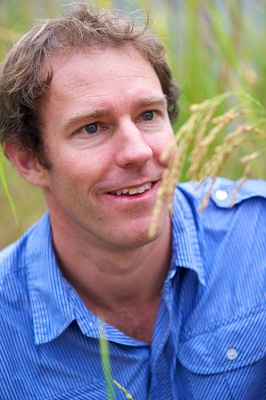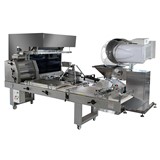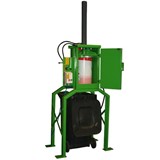Little is known about agricultural greenhouse gas emissions and soil carbon dynamics in the tea tree industry.
Growers currently remove harvested leaf material from the farm, and replace soil nutrients with synthetic fertiliser and poultry litter. These practices do little to build soil carbon levels or reduce emissions of the potent greenhouse gas nitrous oxide.
The project is being conducted through an alliance between Southern Cross University and NSW Department of Primary Industries (DPI) at Wollongbar, led by SCU Research Fellow Dr Terry Rose and Dr Lukas van Zwieten, from the NSW DPI. The project is funded by the Australian Government, Department of Agriculture, Fisheries and Forestry as part of its Carbon Farming Futures – Action on the Ground program, along with the University, NSW DPI, the Rural Industries Research and Development Corporation (RIRDC) and the Australian Tea Tree Industry Association.
The project will trial and demonstrate the use of tea tree leaf biochar, poultry manure biochar and inter-row legume crops on tea tree plantations. These management practices are aimed at lowering emissions of agricultural greenhouse gases from soils while increasing carbon storage potential on farms. The project commenced in July 2012, and will conclude in June 2015.
"Biochar is biomass that has been pyrolysed, that is, heated to temperatures around 450 degrees C in oxygen limited environments," Dr Rose said.
"Biochar is a very stable form of carbon, and when applied to soil, can increase soil carbon levels for many hundreds of years from a single application. Obviously if carbon is in the soil it’s not in the atmosphere. Once tea trees have been harvested and distilled for their oil, there is a lot of leaf waste left over which has traditionally been sold-off as mulch. However, that mulch releases carbon (as carbon dioxide) as it breaks down into the atmosphere without much long-term benefit to the soil on which it is applied.
"There is a growing body of evidence to suggest that biochar, when applied, can stimulate soil carbon accumulation, aid in water retention and soil physical properties, and also aid in nutrient retention. This has benefits to both the farmers and also the environment.
"Ultimately, we aim to develop a methodology for trading carbon from this system, so that farmers can claim carbon credits under an Emissions Trading Scheme."
Baseline greenhouse gas emissions and soil carbon are being recorded from the trial sites and will be compared with management strategies including application of biochar, and the use of inter-row legumes.
Tea tree is a species unique to Australia and native to northern NSW and more than 80 per cent of the world’s tea tree oil is produced in Australia. Most commercial tea tree production occurs around the Northern Rivers where about 3000 hectares is cultivated by about 100 producers. The greenhouse gas trials will be undertaken on local tea tree farms in conjunction with the Australian Tea Tree Industry Association.
Dr Rose said there was also the potential for future projects using the same methods in other industries including macadamias, coffee and rice.


-160x160-state_article-rel-cat.png)










-160x160-state_article-rel-cat.png)
-160x160-state_article-rel-cat.png)




-160x160-state_article-rel-cat.png)



